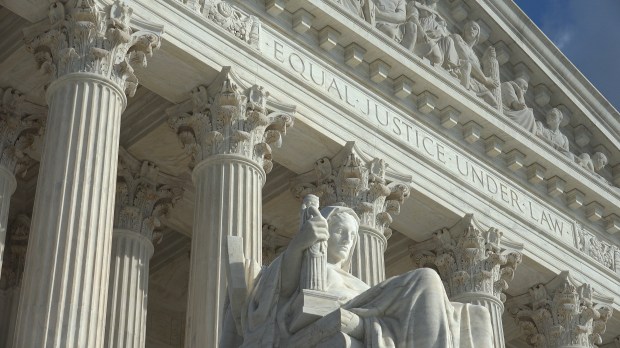Lenten Campaign 2025
This content is free of charge, as are all our articles.
Support us with a donation that is tax-deductible and enable us to continue to reach millions of readers.
More than half of the school districts in the state of Maine do not operate their own high schools. Instead, the districts pay for students to attend schools in other districts, whether they are public or private.
But the tuition-assistance program allows the funds to be used only at “nonsectarian,” i.e., non-religious, schools.
To David and Amy Carson and Troy and Angela Nelson, that was unfair. They wanted to use funds from the program to send their children to private Christian schools.
Now, the Carsons and the Nelsons will be able to make their case at the United States Supreme Court, which has agreed to hear Carson v. Makin.
Carson is one of the cases the Supreme Court will be deciding in its 2021-22 term, which opens October 4.
In federal court, the parents argued that their exclusion from the program violated their constitutional rights, including their rights to exercise their religion. “The U.S. Court of Appeals for the First Circuit upheld the program, reasoning that the exclusion of religious schools hinged on whether the money was used for religious instruction and to proselytize, rather than simply on whether the school was religious,” SCOTUS Blog reported.
The case “will decide the future of tuition reimbursement for schools with a religious affiliation and is likely to be a key decision in the future of government oversight and parental choice in education,” said Catholic News Service.
Last year, the Supreme Court ruled in Espinoza v. Montana Department of Revenue that states are not required to subsidize private education, but they cannot exclude religious schools from receiving tuition funding simply because they are religious.
“The Maine case looks at an issue that wasn’t resolved in the Espinoza case: Does a state violate the Constitution with a program that provides students with money to attend private schools but bars them from attending schools that provide religious instruction?” Catholic News Service said.
“The Supreme Court has said that schools cannot be excluded for their religious status — that should have been enough,” Diana Thomson, senior counsel at Becket, a religious liberty law firm, said in a statement. “But now it should clarify that this rule includes schools that want to actually teach the faith to their students.”



